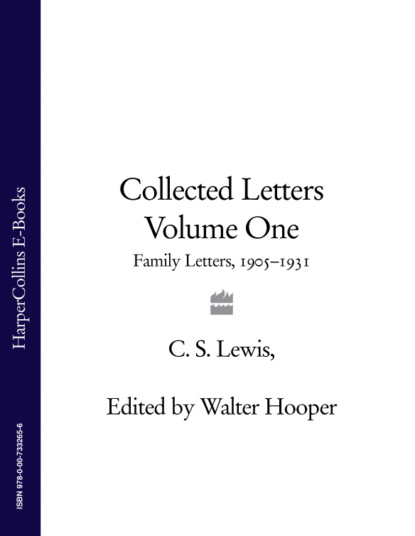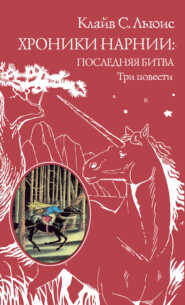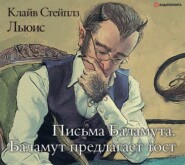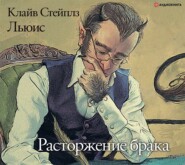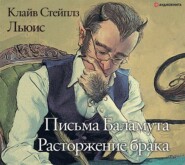По всем вопросам обращайтесь на: info@litportal.ru
(©) 2003-2024.
✖
Collected Letters Volume One: Family Letters 1905–1931
Настройки чтения
Размер шрифта
Высота строк
Поля
This term in the Grundy I have discovered a new poet whom I must get, Yeats. I never read any of his works before, and both what he says and the way he says it, please me immensely. Do you know him or care for him at all?
Just one bit of ‘Kodotto’ before we stop. In the study or in your dressing room (not mine), you will find a little black book of Warnie’s, a Greek Testament. I should be very glad if you would send it here as soon as possible.
your loving
son Jack
TO HIS FATHER (LP IV: 179-80):
[Malvern College]
Postmark: 31 May 1914
My dear Papy,
Many apologies again for these same ‘epistolary shortcomings’. But the days this term are so very full, and are spent so much out of doors that it is very hard to polish off the weekly letter with anything like regularity.
What a nuisance that old arm is to be sure. However, I expect that when the fine weather sets in it will improve. I am sorry that in asking you to procure my Attic pentateuch I was compelling you to embark upon a voyage at once perilous and disagreeable and arduous (Johnsonese again). I hope that by the time this letter reaches you, the study wall will have been replaced and the stately hall of Leeborough will smile upon guest and inhabitant with its pristine splendour and hospitality. Of course in restoring the ‘main library’ you are careful to alter the appearance of the room as little as possible. It would be a pity if I came home to a strange house. In the meantime I hope that the small library has been allowed to remain untouched?
This week I am glad to say that the Greek grammar has been going a good deal better; I hope this will continue, as it would be a pleasure to secure a good report of these people before I left. Happily Browning has been ill at the Sanatorium since last Monday, which has kept him out of mischief for one week at least. Last week I got out of the library the works of our present poet laureate, Bridges, who did not impress me a bit;
(#ulink_82ccb3d6-f764-540f-8d3a-4fc43468a653) but I have now struck better ground in Charlotte Bronte’s ‘Wuthering Heights’,
(#ulink_5dbfd8d2-2c69-5cfe-9739-297e57f95c4d) which although melodramatic like all her books, shapes very well indeed.
Before I close I must request you to forward a little of the ‘ready’ as owing to exorbitant subscriptions, fines, and the expenses of the summer term, our whole study has run out of cash. As long as one of us was flush the other two could live upon him, but when all three are in this condition it is impossible.
I hope that your arm will not remain ‘hors de combat’ very long.
your loving
son Jack
TO ARTHUR GREEVES (W/LP IV: 180-1):
[Malvern College
5 June 1914]
Dear Arthur,
I really must apologize for having kept such a long and unjustifiable–silence. But the readiest means of mending that fault are those of writing fully and at once–which I now propose to do. To begin at the beginning, you had hardly been outside Little Lea for twenty minutes when a chance of not going back seemed to be held out to me, only, as you may guess, to be snatched away again. When we came to pack up my last few belongings, what should happen but that no key was to be found for my trunk! High and low we searched, but not a sign of it. My father was in despair: how was I to go back? How long would it take to have a new lock fitted? For a few moments I had a wild hope of staying at home. What was my disgust, when, almost at the last moment, Annie
(#ulink_6d688051-f010-5f00-ae8f-995aeeb057ef) turned up with the required artical, and off I had to go!
Since then, I have lived or existed as one does at School. How dreary it all is! I could make some shift to put up with the work, the discomfort, and the school feeding: such inconveniences are only to be expected. But what irritates me more than anything else is the absolute lack of appreciation of anything like music or books which prevails among the people whom I am forced to call my companions. Can you imagine what it is like to live for twelve weeks among boys whose thoughts never rise above the dull daily round of cricket and work and eating? But I must not complain like this, I suppose. Malvern has its good points. It teaches one to appreciate home, and to despise that sort of lifelessness. If I had never seen the horrible spectacle which these coarse, brainless English schoolboys present, there might be a danger of my sometimes becoming like that myself. But, as it is, I have had warning enough for a lifetime. Another good point about Malvern is the Library, which is one of the best-stocked I have ever been in–not that anyone but myself and two or three others care twopence about it, of course! I have here discovered an author exactly after my own heart, whom I am sure you would delight in, W.B. Yeats. He writes plays and poems of rare spirit and beauty about our old Irish mythology. I must really get my father to buy his books when I come home. His works have all got that strange, eerie feeling about them, of which we are both proffessed admirers. I must get hold of them, certainly.
You can hardly tell how glad I was to hear that you were learning theory. It is a positive shame that you should go about with all those lofty strains running in your head, and yet never set pen to paper to perpetuate them. Of course, take the ‘Loki Bound’ MS.
(#ulink_5bc56259-4cab-59fb-ada3-3233d8b650a9) over to Bernagh,
(#ulink_5f19c194-a8c5-5877-aa18-511489b85b9b) anytime you feel inclined to compose a little operatic music. Thank you very much indeed for undertaking the job of the gramaphone. I suppose by this time it is restored to its former condition. It makes me furious to think of your being able to walk about your house and ours and all the beautiful places we know in the country, while I am cooped up in this hot, ugly country of England. Where is your favourite walk? I hope that by this time you are quite recovered and are able to go about freely without fear of injury. County Down must be looking glorious just now: I can just picture the view of the Lough and Cave Hill from beside the Shepard’s Hut. Sometime next holydays, you and I must make a journey up their before breakfast. Have you ever done that? The sunrise over the Holywood Hills, and the fresh stillness of the early morning are well worth the trouble of early rising, I can assure you.
Since I have touched on the subject of health, I must ask a few questions of a disagreeable nature, on a matter which I have very near my heart. I have now had no direct letter from my father for over three weeks, and I hear that he is very ill. I would be very thankful indeed if you would go over and see him sometimes, and try and cheer him up: then you could tell me exactly how he is, and whether what I have heard has been exagerated or not–although I really don’t deserve a reply to this after the shameful way I have treated you with regard to letters. But I feel sure you won’t mind writing just a few lines, to tell me about yourself and family, and the state of various other things, besides my father’s health. As I am sure you are tired by this time of a long and melancholy letter, I will stop.
Yours affectionately
Jack Lewis
TO HIS FATHER (LP IV: 190-1):
[Malvern College]
Postmark: 22 June 1914
My dear Papy,
Since I last wrote to you, I received, with your knowledge as I gather, a letter from Annie, short and comfortless enough to be sure, but still something to keep me from alarm. The most promising thing about her communication was that she promises me a letter from you at no very distant date. Do not force yourself to write until you feel thoroughly fit–but when you can, let me have a rare budget of news and reflections to compensate for the weeks ‘that the locust hath eaten’.
(#ulink_fdb7b635-e025-5f3f-9fb6-492902b03693) Above all, don’t forget to tell me all about yourself. I will spare you the trite expressions of sorrow and hope for your recovery; between those who know each other so well, such remarks are out of place, and I am sure you have had enough of that sort of thing. I should like to encourage you to cheer up if I thought I should have any success in that line; I must at any rate mention one consoling circumstance–namely that it is now half way through this dreary term, and is only five weeks till we shall be together again. This week you will get the report: and I hope and pray, not without confidence, that it will do nothing to add to your discomfort. I think I have now crossed the Rubicon in Greek Grammar, and am now happily arrived at the safe side of it. Mr. Smith [Smugy] has been very kind to me indeed, and I think we shall part friends.
This week I have been reading a most remarkable book which has created a great impression. It is ‘The Upton Letters’,
(#ulink_f540643c-bab1-5319-afc5-3f5a46b966c3) a series of letters from a school master at ‘Upton College’ to a friend whose health confines him in Madeira. They purport to have been actually written on such an occasion and not for publication; and indeed the utter absence of plot, or in some cases even of connection, make this seem to be true, although their wonderful beauty argues against it. But to come to my point: the great revelation of the book is the statement made somewhere that we ‘ought not to write about our actions but about our thoughts’. How wonderfully true. We busy ourselves, you and I, telling each other about the weather and the little trivial happenings of each day, while the thoughts of our hearts, the really great experiences of our selves, are seldom spoken of. Of course this is rather rhetorical and letters written entirely on those lines would tend to become monotonous. But the saying struck me so forcibly at the time that I thought I would mention it to you.
This week the natural course of our life has been torn up as it were, by a cyclone in the form of speech day. I suppose you will be able to read Preston’s speech in the Times, and give your own verdict upon it.
(#ulink_1b8f2bb9-d242-5819-b49a-829dc71b1bfa) For my part, I did not see much merit in it–a few trite maxims, a few of the usual jokes, and that was all. In fact if the truth must be told, Preston is not a big man. He is, as far as I can see, a learned and courtly gentleman of captivating manners, but not the person who can save the ruin of a tottering school. Malvern would seem to be fated by the gods never to secure the right man as her headmaster. It is gratifying for me to think that I may live to see the end of this place. Perhaps that is an ungenerous thought: and I should hesitate to bestow my loathing so heartily on anything, even an inanimate object, if I did not think that it would be a real benefit for the country if this place were suppressed.
At this time of the year especially, one sees how awfully the place misses its mark. The whole of our spare time is given up to the great business of our life–cricket. Cricket is played with intense seriousness, and the players are usually in a very bad temper with themselves and everyone else, owing to the strain put on their minds by such a stupendous affair. Now for me, work is the business of the term: I am tired when I come out of school, and should like some recreation. Unfortunately, I am frankly and desperately bored by the recreations that are forced upon me. And yet it is obvious that one must have compulsory games at school: but if you do, as it seems, they are given this ludicrous preponderance and become for some the absorbing interest of their life, and for others a bogie and an incubus.
I enclose a few verses in imitation of Ovid, which were top of the form last week and well spoken of by Smugy. Do you care for that metre? There are a great many rhymes in it, which makes it difficult; but the thing that I want to learn is ‘to move easily in shackles’ (I wonder who said that? Do you know?)
Before I close I must again make shift to bite the paternal ear; as the 10/-which you were kind enough to send has been absorbed in paying off old debts and buying back for the study things which had been sold in the days of extreme embarrasment. I hope you won’t think this extravagant.
See you take care of yourself, and write as soon as you are able.
your loving
son Jack
The following poem was enclosed with the letter above. The words underlined by ‘Smewgy’ are in capital type, and his remarks are in brackets.
‘Ovid’s “Pars estis pauci”’
(Metre copied from a chorus in Swinburne’s ‘Atalanta in Calydon’)
I.Of the host whom I NAMEDAs friend, ye aloneDear few!, were ashamedIn troubles unknownTo leave me deserted; but boldly ye cherished my cause asyour own. (Yes.)





